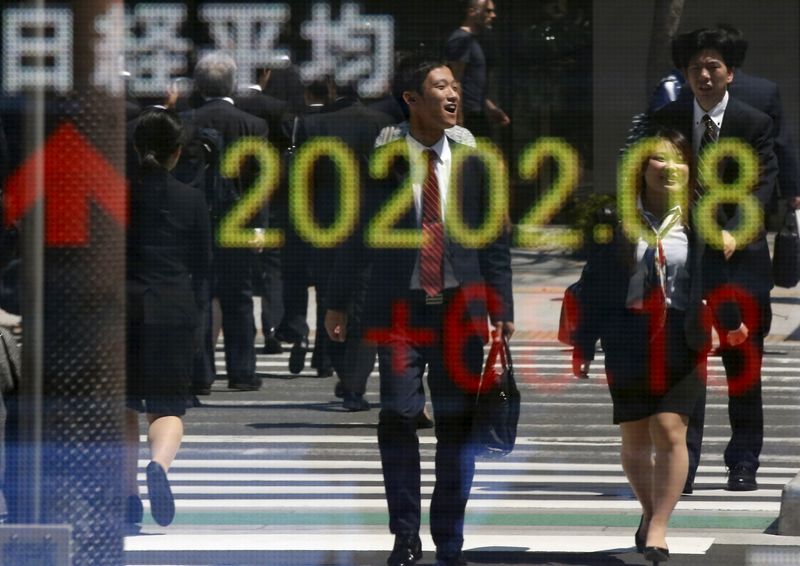By Alex Ho
Investing.com - Asian markets gave up some of their gains on Wednesday from a rebound a day earlier, despite the possibility of the U.S. rolling out a package of support measures.
China’s Shanghai Composite was the only major market in the region trading higher, up 0.30% by 11:30 PM ET (3:30 AM GMT), but the tech-heavy Shenzhen Component was down by 0.39%.
Australia’s ASX 200 was down 2.33% while Japan’s Nikkei 225 declined by 1.01% and South Korea’s KOSPI lost 1.26%.
Hong Kong’s Hang Seng Index gave up early gains and was trading down 0.21%.
Asian stocks rebounded Tuesday after a big global sell-off Monday sparked by a crash in oil prices and fears of the impact of COVID-19. While Wall Street’s rebound continued on Tuesday, Asian markets were trading mostly in the red.
Wall Street appeared to get momentum from expectations that U.S. President Donald Trump would soon announce details of a package of measures to deal with the impact of the spread of the coronavirus and the oil price crash. As of Tuesday, the number of COVID-19 deaths around the world topped 4,000, according to the World Health Organization.
Trump had been expected to hold a press conference on Tuesday but that event did not happen, briefly forcing a downturn in U.S. markets, which briefly gave up most of their gains.
“We were promised something substantive from the Trump administration, and if it hasn’t come yet at this hour, then it looks like it is being delayed. That’s why markets have a negative tone,” Michael McCarthy, chief market strategist at CMC Markets told Reuters in the afternoon. “From a global investor’s perspective, there are still a lot of downside risks.”
Still, during a meeting with Republican senators, Trump did propose a series of measures including payroll tax cuts, relief measures targeting specific industries like tourism and hospitality, and support for hourly workers that miss work. On Wall Street Tuesday, the Dow 30 finished the Tuesday session up 4.89% and the S&P500 finished up 4.94% while Nasdaq closed up 4.95%.
“It’s market March Madness at the moment, complete with surprising losses, upsets, and comebacks,” Mike Loewengart, managing director of investment strategy at E*Trade Financial told Bloomberg.
